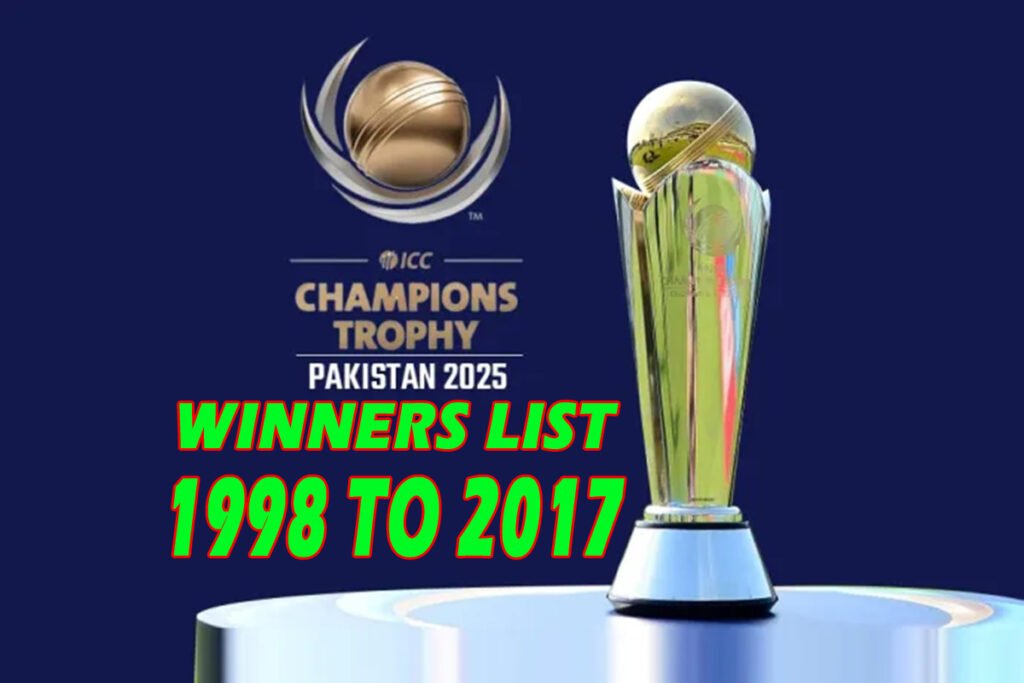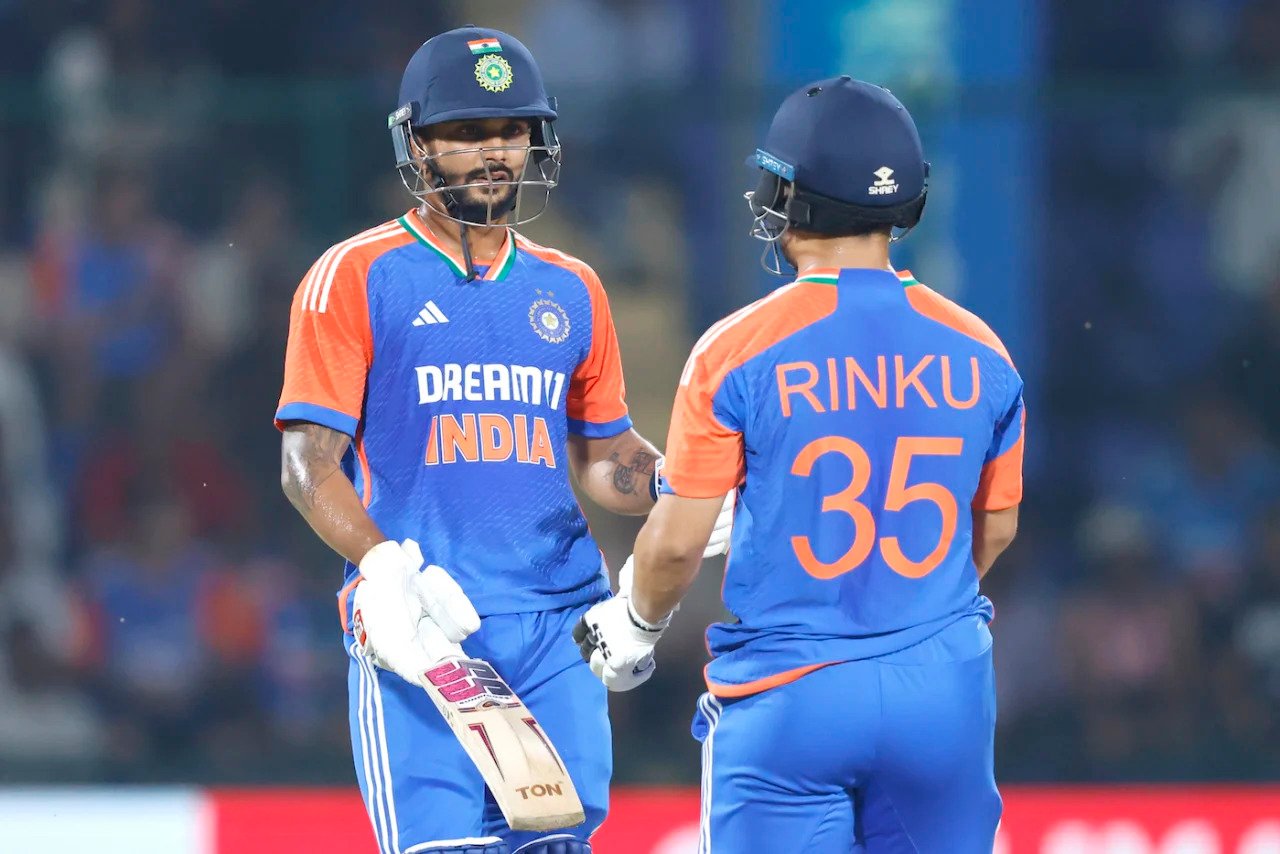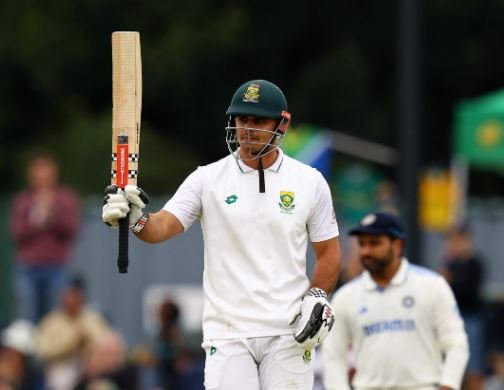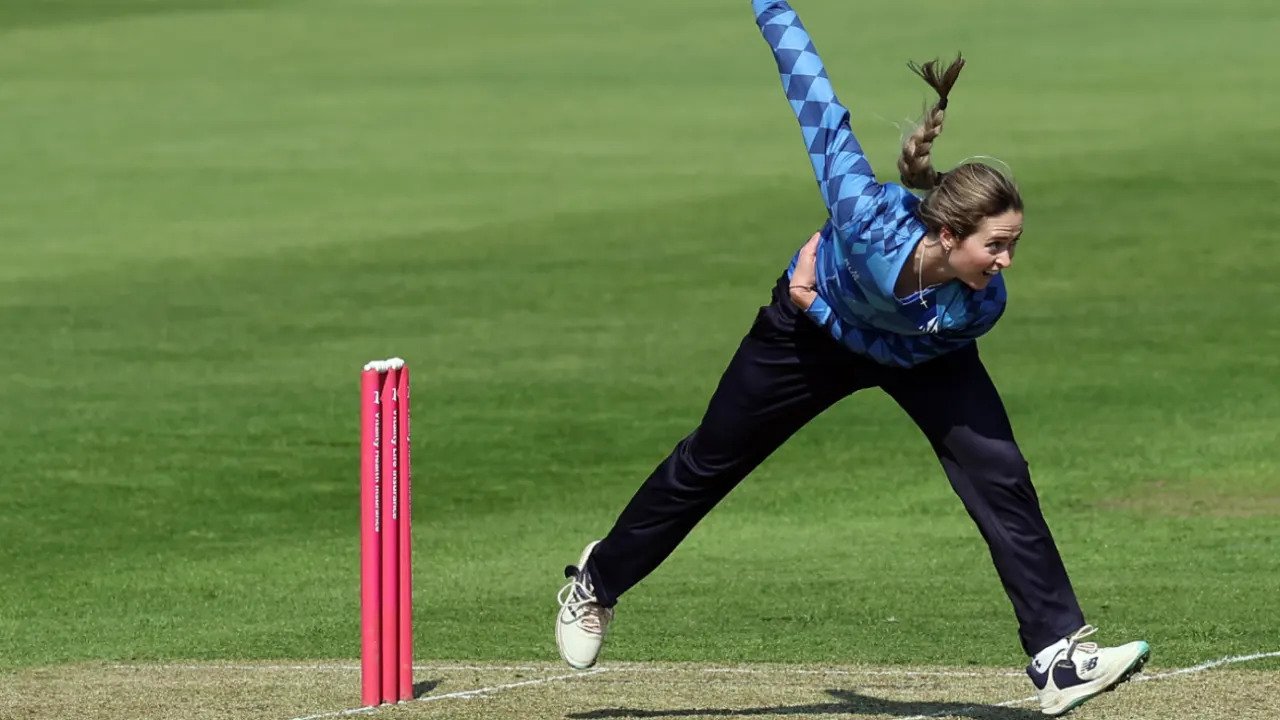List of ICC Champions Trophy Winners from 1998 to 2017
The ICC Champions Trophy, often referred to as the “Mini World Cup,” was launched by the International Cricket Council (ICC) in 1998 with the primary aim of fundraising. This prestigious tournament featured top-ranked ODI teams and was hosted across various cricketing nations.

Initially, it was held every four years and was called the ICC Knockout Tournament. The primary objective was to raise money for cricket in nations without Test status. The first two iterations took place in Bangladesh and Kenya. However, the competition later moved to major cricketing nations like England and India because of its financial success.
The format was altered to just include the top 8 teams in the ICC ODI rankings beginning with the 2009 edition. Six months before to the start of the award, the rankings cutoff was established. The Champions Trophy was dropped after the 2017 edition in order to concentrate on holding one worldwide competition for each of the three forms of cricket.
However, the ICC shocked everyone in 2021 when it revealed that the Champions Trophy would return, with events scheduled for 2025 and 2029. The Champions Trophy winners from each previous year are included in this article.
The following teams have qualified for the 2025 Champions Trophy after the 2023 World Cup league stage ended: Australia, New Zealand, South Africa, and India. South Africa qualified by making it to the semifinals. Afghanistan, ranked sixth, and Pakistan, the host country, were also included. Top cricketing nations will join India, one of the first countries to win a spot, for the highly awaited Champions Trophy comeback after seven years.
Also Read: Australia Dominated New Zealand To Defend Champions Trophy Title In 2009
Also Read: India’s Triumph in 20-20 Sprint: India vs England 2013 Champions Trophy Final
ICC Champions Trophy Winners List
Year | Winner | Runner Up | Hosts |
1998 | South Africa | West Indies | Bangladesh |
2000 | New Zealand | India | Kenya |
2002 | Sri Lanka and India | — | Sri Lanka |
2004 | West Indies | England | England |
2006 | Australia | West Indies | India |
2009 | Australia | New Zealand | South Africa |
2013 | India | England | England and Wales |
2017 | Pakistan | India | England and Wales |
History of Champions Trophy and its Evolution
The ICC Champions Trophy was renamed the Champions Trophy in 2002 after it had started in 1998 as the ICC KnockOut Tournament. Let’s summarize its trip in layman’s words. The Champions Trophy was created by the ICC to provide funds for the development of cricket in nations that do not play Test matches. The initial competitions took place in Kenya and Bangladesh, but because of their popularity, the ICC started making a lot of money from them.
It began as a knockout competition and was once known as the mini-World Cup involving all ICC full members. It moved to a round-robin style in 2002, but it remained brief, lasting only two weeks. The number of teams has fluctuated over time, but from 2009, only the top eight teams in the ICC ODI Rankings have taken part.
England has hosted the Champions Trophy three times out of the seven countries that it has been held in. It was contested every two years at first, but starting in 2009, it was held every four years to coincide with the World Cup schedule.
In eight editions, thirteen teams participated, with Australia and India taking home two titles apiece. The ICC planned to have one championship match for every cricket format, hence the 2017 edition was the final one. Future plans for an ODI League in 2019 posed a danger to the Champions Trophy.
Due to COVID-19, the 2021 ICC T20 World Cup was rescheduled from India to the United Arab Emirates, and there was no Champions Trophy that year. But starting with the 2025 cycle, it’s back on the schedule, which opens a new chapter in this cricketing adventure.





